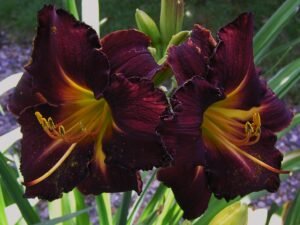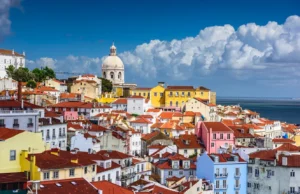Filming in Nigeria: A Comprehensive Guide
Thanks to the rapid growth of Nollywood, which ranks as the second-largest film industry in the world in terms of output, Nigeria has become a major player in the global film industry. With its rich cultural heritage, diverse landscapes, and increasing infrastructure, Nigeria has attracted local and international filmmakers. Whether you’re looking to shoot an urban drama or a rural epic, the country offers a unique setting that brings stories to life.
Why Choose Nigeria for Filming?
Nigeria is an exciting destination for filmmakers for several reasons:
- Diverse Landscapes: The country has everything from sprawling urban areas to serene villages, beautiful coastlines, and mountainous regions.
- Rich Culture: Nigeria’s 250+ ethnic groups offer widvariousitions, languages, and storytelling methods, providing depth to any narrative.
- Cost-Effective: Filming in Nigeria is generally more affordable compared to other locations, especially when you consider production costs like location fees, crew wages, and logistics.
- Growing Infrastructure: Nigeria is steadily improving its film infrastructure, with an increasing number of studios, equipment rental companies, and skilled local crews.
Top Filming Locations in Nigeria
Here are some of the best filming locations in Nigeria:
- Lagos: Known as the hub of Nollywood, Lagos offers a vibrant urban backdrop. The city’s skyline, bustling markets, and beaches make it perfect for contemporary stories.
- Abuja: Nigeria’s capital city is known for its modern architecture and offers great settings for political and modern-day films.
- Calabar: This city in Cross River State is a mix of history and nature, with colonial-era buildings, tropical landscapes, and vibrant cultural festivals.
- Jos Plateau: This area is known for its lush scenery and mountainous views, perfect for nature-centric films.
- Benin City: For films that explore Nigeria’s ancient culture, Benin City, with its historical relics and traditional art, is a must-see location.
Navigating the Legal and Regulatory Landscape
Filming in Nigeria involves a few legal steps:
- Permits and Licenses: Filmmakers need to apply for filming permits, especially when using public spaces. These can be obtained through the Nigerian Film Corporation (NFC) or local authorities.
- Working with Authorities: The NFC provides guidance on legal procedures and helps facilitate communication between filmmakers and local communities.
- Visa Requirements: International filmmakers will need to apply for a work visa. Ensure that you start the process early to avoid delays.
- Copyright Protection: Nigeria has copyright laws to safeguard intellectual property, so it’s essential to secure the rights for your work.
Filmmaking Resources Available in Nigeria
Nigeria offers a range of resources to help filmmakers produce high-quality films:
- Local Talent: The country boasts a wide range of actors, producers, directors, and film crews, many of whom have international experience.
- Equipment Rental Services: There are several companies in Lagos, Abuja, and other cities where filmmakers can rent cameras, lighting, and sound equipment.
- Post-Production Facilities: Editing, sound mixing, and special effects services are available in Nigeria. Lagos, in particular, has some top-tier post-production studios.
- Training Institutions: If you’re looking to train your crew or collaborate with professionals, institutions like the National Film Institute in Jos offer courses and resources.
Success Stories: Films Shot in Nigeria
Nigeria has been the backdrop for several internationally recognized films:
- “Half of a Yellow Sun” (2013): A film adaptation of Chimamanda Ngozi Adichie’s novel, shot in various Nigerian locations, showcasing the country’s beauty and historical significance.
- “The Milkmaid” (2020): This film, set in northern Nigeria, highlights the resilience and rich traditions of local communities, earning acclaim at international film festivals.
- Nollywood Blockbusters: Many Nollywood films, like “Lionheart” (2018), which became Nigeria’s first submission to the Oscars, have gained global recognition.
Challenges of Filming in Nigeria
Filming in Nigeria while rewarding, comes with some challenges:
- Infrastructure Gaps: Although major cities like Lagos and Abuja have good infrastructure, rural areas may lack reliable electricity, roads, and communication networks.
- Weather Conditions: The tropical climate means rainy seasons and high humidity can affect outdoor shoots, so it’s essential to plan accordingly.
- Cultural Sensitivities: Understanding local customs and traditions is key to a successful shoot. Filmmakers should build relationships with local communities and ensure that their work is respectful.
- Security Concerns: In some parts of Nigeria, there may be safety concerns. Working with local authorities and taking necessary precautions is important to ensure a smooth filming process.
Tips for Filming in Nigeria
- Best Times to Film: The dry season (November to March) is generally the best time for outdoor shoots, as the weather is more predictable.
- Building Relationships: Establishing connections with local producers, actors, and community leaders can make the process easier and smoother.
- Budgeting: Plan for unexpected costs such as transportation delays or equipment maintenance. Allocating extra funds can help mitigate any unforeseen challenges.
- Cultural Sensitivities: Respect for local cultures and traditions is crucial. Doing research and working with local advisors can ensure your production runs smoothly.
The Future of Filming in Nigeria
The Nigerian government is actively promoting the country as a filming destination. Initiatives such as the Nigerian Film Policy aim to attract foreign filmmakers, while Nollywood continues to expand its influence globally. With collaborations between local and international filmmakers increasing, Nigeria is poised to become a major hub for global film production.
Conclusion: Why Nigeria is the Next Big Filming Destination
With its dynamic landscapes, vibrant culture, and growing film infrastructure, Nigeria is an ideal destination for filmmakers looking for fresh and unique storytelling opportunities. By tapping into the country’s rich traditions and talented workforce, filmmakers can create powerful narratives that resonate with audiences worldwide.
Whether you’re a Nollywood insider or an international filmmaker looking to explore new horizons, Nigeria is ready to welcome you.














Post Comment